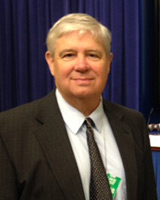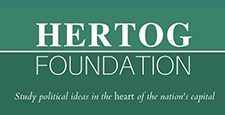 Dr. Kevin Simmons, Austin College professor of economics, is recognized internationally for his expertise in the economics of natural hazards. When tornado and hurricane seasons are underway, he routinely receives calls from media outlets from Houston to Dallas to Oklahoma City, and from the New York Times to USA Today.
Dr. Kevin Simmons, Austin College professor of economics, is recognized internationally for his expertise in the economics of natural hazards. When tornado and hurricane seasons are underway, he routinely receives calls from media outlets from Houston to Dallas to Oklahoma City, and from the New York Times to USA Today.
In his classroom, he is known to enthusiastically share his expertise with his students as a dedicated educator. This spring, he was recognized as the College’s 2020 Minnie Stevens Piper Professor nominee, the nomination itself considered an Austin College teaching award. The Minnie Stevens Piper Foundation honors 10 Texas college and university professors each academic year for dedication to the teaching profession and for outstanding academic, scientific, and scholarly achievement.
Putting knowledge to work is part of his philosophy. “I have found that students learn more when they have hands-on experience with the subject,” Simmons said. “During January Term, I teach a class, ‘Economics of Poverty,’ in which students volunteer for agencies serving to low- income families. The same idea is applicable in more quantitative courses, too. I teach ‘Predictive Analytics,’ and for the final project, students use live client data from our partner Intalytics, a data analytics firm in Dallas. Students use the data to make real-world predictions for an Intalytics client regarding the best sites for firm expansion.”
Believing that research also enhances the classroom experience, the professor is pleased to involve his students in his own areas of research. “In my most recent project, Austin College students Alison Boehmer ’19 and Seth Howard ’20 conducted a project for the National Oceanic and Atmospheric Administration (NOAA),” Simmons said. “They found that switching to a tornado warning system that uses probabilities rather than the current warning system will save the nation billions of dollars annually in lost productivity.”
The student involvement is not simply a way to further his own studies but provides exceptional opportunities for the students. Both students turned their work into honors theses, and both had opportunity to present their research in professional settings. “I cannot imagine a career in which research, peer critique, and deep, contemplative conversation is not central,” Boehmer said. “I would like nothing more than to spend a life involved in knowledge being generated.”
Moving student learning beyond the classroom into realistic applications is an element of Simmons’ teaching goal. “In doing so, we provide a glimpse of how what they learn can be applied and utilized in their post-Austin College life.”
Simmons joined the Austin College faculty in 2003 as associate professor of economics. In 2006, he was installed in the Clara R. and Leo F. Corrigan Sr. Chair in Business Administration and Economics.
In spring 2010, Simmons was selected as a Fulbright Research Scholar, working with the International Centre for Geohazards in Oslo, Norway. His books, The Economic and Societal Impact of Tornadoes and Deadly Season: Analyzing the 2011 Tornado Outbreaks, helped to solidify his status as an economic disaster expert. Both books are co-authored with Daniel Sutter, published by the American Meteorological Society, and distributed by the University of Chicago Press. Over the last 20 years, he has presented numerous papers at academic conferences in the U.S. and also in more than 10 different countries. Additionally, he has made speeches for industry groups with an interest in natural hazards, most notably institutes sponsored by property insurers.
In addition to his academic work, Simmons has served as an advisor for the U.S. Department of Housing and Urban Development and as a consultant to the property insurance industry. He has participated in Weather Ready Nation, the U.S. Weather Research Project, and as a member of the steering committee for the National Conference on the Great Tornado Outbreak of 1999.
Simmons earned his bachelor’s degree at The University of Texas at Arlington, a master’s in business administration degree at Dallas Baptist University, and a Ph.D. at Texas Tech University, where he developed his research interest in the economics of natural hazards.
Austin College, a private national liberal arts college located north of Dallas in Sherman, Texas, has earned a reputation for excellence in academic preparation, international study, pre-professional foundations, leadership development, committed faculty, and hands-on, adventurous learning opportunities. One of 40 schools profiled in Loren Pope’s influential book Colleges That Change Lives, Austin College boasts a welcoming community that embraces diversity and individuality, with more than 50 percent of students identifying as persons of color. The residential student body of approximately 1,300 students and more than 100 expert faculty members allow a 13:1 student-faculty ratio and personalized attention. Related by covenant to the Presbyterian Church (USA), Austin College cultivates an inclusive atmosphere that supports students’ faith journeys regardless of religious tradition. The College, founded in 1849, is the oldest institution of higher education in Texas operating under original name and charter.



